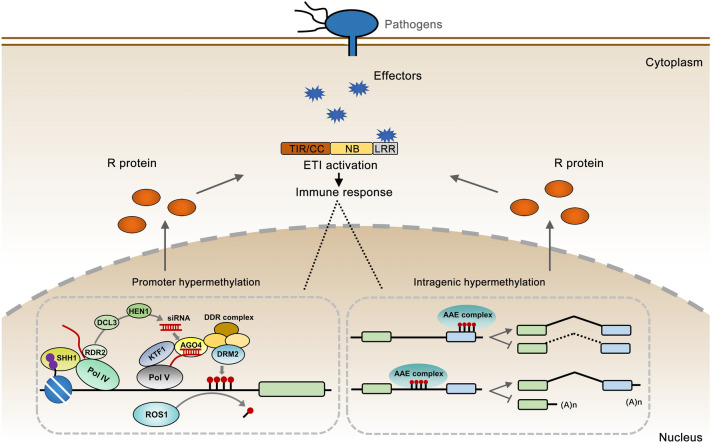Fig. 3.
DNA methylation-dependent regulation of R gene-mediated immunity. Specific pathogens cause plant disease through the secretion of effectors into host cells. In the resting state, the promoter region of R genes is hyper-methylated and silenced by the RdDM pathway. The DNA demethylase, ROS1, can antagonize the silencing of R genes through DNA demethylation, during infection, thereby promoting the expression of R genes. In another case, the intragenic hyper-methylation can recruit the AAE protein complex to promote the production of full-length transcripts of R genes. Impairment of DNA methylation, or the AAE complex, results in mis-splicing or proximal polyadenylation, facilitating the production of intact R protein. Then, the R protein can activate ETI immune responses through recognition of the effectors. The ETI immune response may also have an important effect on the dynamic regulation of the DNA methylation state on R genes

